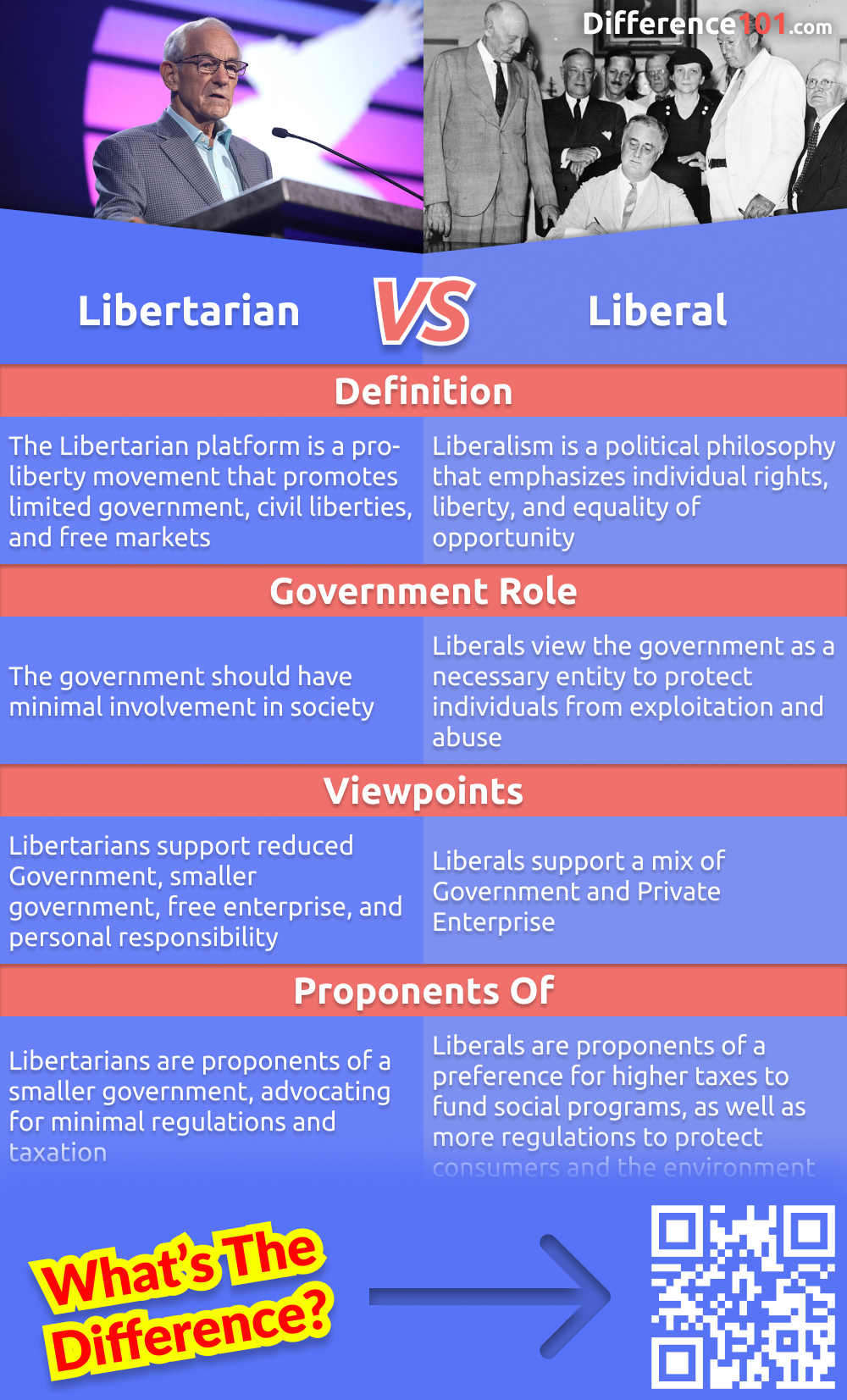Imagine two friends, both deeply passionate about liberty. One believes in a strong social safety net, advocating for government intervention to protect the vulnerable and promote equality. The other believes in minimal government interference, prioritizing individual autonomy and economic freedom. This scenario, while fictional, highlights the fundamental divide between two prominent political philosophies: liberalism and libertarianism. Both champion freedom, but their visions differ significantly, leading to heated debates and even personal clashes. In this article, we delve into the core tenets and nuances of liberalism and libertarianism, understanding their strengths, weaknesses, and the implications for our society.

Image: www.slayerment.com
The concepts of liberalism and libertarianism, while intertwined, encapsulate distinct perspectives on the role of government and individual liberty. Liberalism, broadly defined, emphasizes individual rights, social justice, and a government that actively promotes these values. Libertarianism, on the other hand, prioritizes individual liberty and autonomy, advocating for limited government intervention in all aspects of life, including the economy.
Liberalism: Equality, Social Justice, and the Role of Government
Liberalism, rooted in the Enlightenment ideals of individual rights and reason, has evolved over centuries, encompassing various schools of thought. At its core, liberalism champions individual freedom, equality, and democracy. It emphasizes the importance of protecting human rights, including freedom of speech, religion, and assembly. Liberalism also advocates for a social safety net, recognizing that individuals may face challenges such as poverty, discrimination, or healthcare access. This led to the adoption of social programs aimed at reducing inequality and ensuring basic needs are met.
Liberalism, in its various forms, has shaped political and social landscapes globally. It has been instrumental in expanding suffrage, promoting civil rights, and establishing social welfare programs. However, internal debates have emerged about the appropriate role of government in achieving these goals. Some liberals believe in a strong and active government, willing to intervene in economic and social spheres to protect individual rights and promote equality. Others, known as “classical liberals,” emphasize a more limited government role, prioritizing individual responsibility and free markets.
Libertarianism: Individual Liberty, Free Markets, and Limited Government
Libertarianism, as the name suggests, prioritizes individual liberty and autonomy above all else. It advocates for a minimal government, believing in the individual’s right to choose their own path without undue interference from the state. Libertarians believe that the free market is the most efficient mechanism for allocating resources, promoting innovation, and generating wealth. They argue that government intervention distorts these processes, hindering individual freedom and economic efficiency.
Libertarianism draws from various intellectual influences, including classical liberalism, anarchism, and Objectivism. While there are various libertarian schools of thought, they generally share common ground: opposition to large-scale government intervention, belief in free markets, and emphasis on individual responsibility. Libertarians often advocate for policies like tax reduction, deregulation, and a strong commitment to free speech and property rights.
The Debate: Where Do They Clash?
The divide between liberalism and libertarianism often boils down to the role of government. While both acknowledge individual liberty, they disagree on how to achieve it. Liberals believe that government intervention, especially through social programs and regulations, is essential to protect vulnerable populations and prevent societal injustices. Libertarians believe that these interventions ultimately restrict individual freedom, creating dependency and hindering economic growth.
One key point of contention is healthcare. Liberals advocate for a universal healthcare system, arguing that everyone should have access to affordable healthcare regardless of their economic status. Libertarians often favor private healthcare markets, arguing that free market competition leads to lower costs and higher quality. This debate highlights the different approaches to social welfare and the role of government in ensuring basic needs are met.
Another major point of difference lies in the regulation of the economy. Liberals argue that government intervention is necessary to prevent monopolies, protect consumer safety, and promote fair labor practices. Libertarians strongly oppose government regulation, believing that it hinders innovation, stifles competition, and ultimately reduces individual freedom.

Image: www.difference101.com
Beyond the Dichotomy: Finding Common Ground
While liberalism and libertarianism seem to stand at opposite ends of the political spectrum, there are areas of common ground. Both emphasize individual rights, freedom of speech, and the importance of self-reliance. However, the question of how to achieve these goals within a complex society remains a significant point of debate.
The key is to engage in respectful discourse and recognize that both perspectives offer valuable insights. Liberalism emphasizes the importance of social safety nets and government intervention to protect the vulnerable and ensure a fair society. Libertarianism highlights the dangers of excessive government power and the potential for unintended consequences stemming from government intervention.
Liberalism Vs Libertarian
Navigating the Spectrum
The debate between liberalism and libertarianism is not about choosing one over the other, but rather finding a balance that promotes both individual freedom and social justice. In a diverse society, different needs and priorities will lead to ongoing discussions and adjustments in policy. Ultimately, the goal should be to create a society where individuals are free to pursue their goals, while ensuring a safety net for those who need it most.





